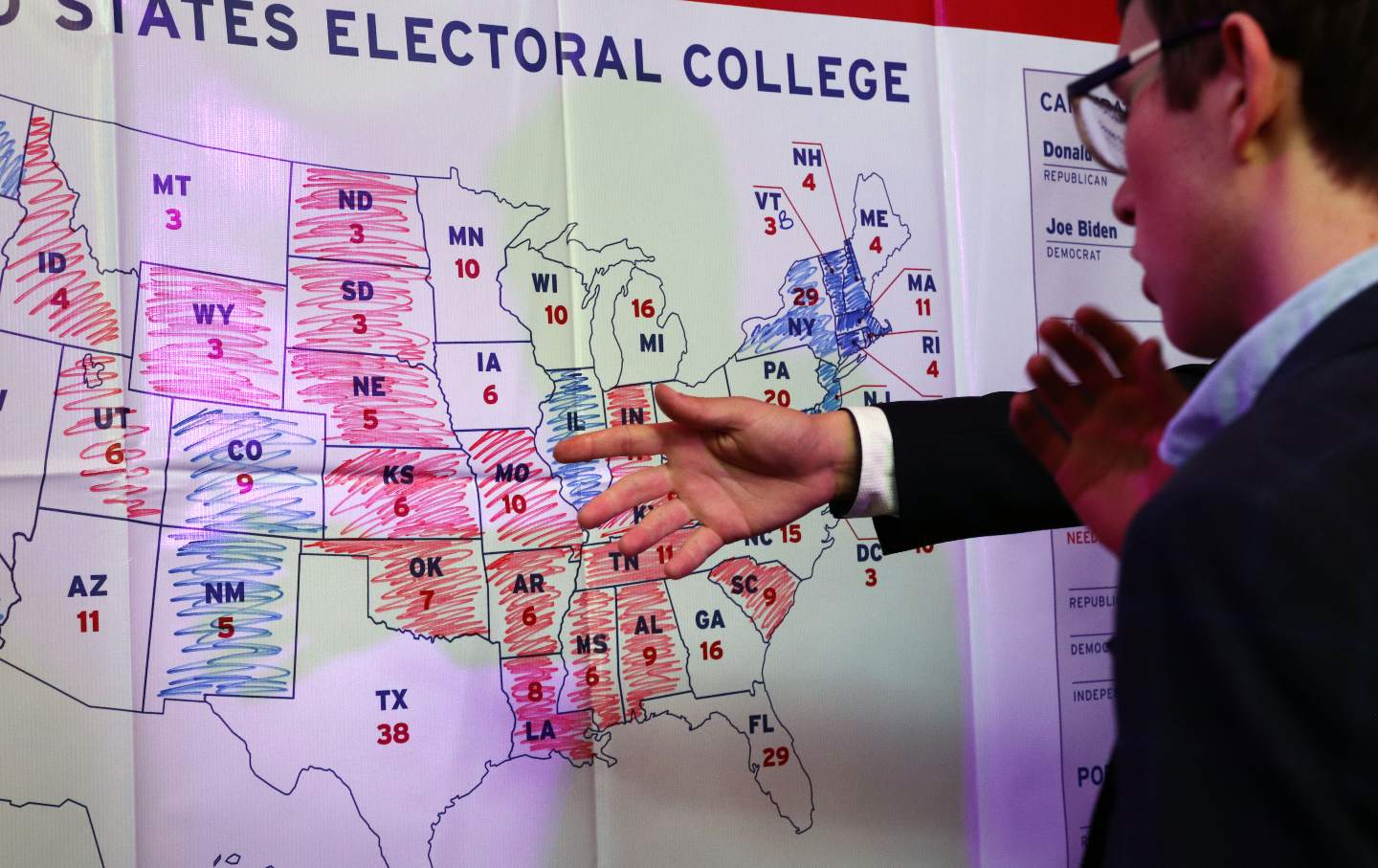Senator Elizabeth Warren may have said it best: “Call me old-fashioned, but I think the person who gets the most votes should win.” But under the Electoral College, some votes matter far more than others. The Electoral College is indeed an undemocratic travesty.
It’s time for us to move toward a national popular vote.
Many Electoral College advocates point to its antidemocratic nature as a benefit, arguing that it serves as a bulwark against the so-called tyranny of the majority. In reality, however, the institution enables a tyranny of the minority, allowing political factions to entrench their rule by appealing to a small group of voters. It’s mathematically possible, for example, to win the Electoral College with less than 22 percent of the popular vote! That’s an extreme case, but the fact remains that, under the Electoral College, a voter in Wyoming has nearly four times the power of a voter in California. By creating artificially narrow results, the Electoral College makes it 40 times more likely that those results are close enough that the outcome could be swung by unelected judges. No wonder 61 percent of Americans support the Electoral College’s abolition, according to a recent Gallup poll.
Electoral College defenders also argue that it forces candidates to forge broad coalitions and campaign everywhere. But in 2016, 94 percent of campaign stops in the general election were concentrated in just 12 states, while 24 states were skipped altogether. Contrast this with gubernatorial elections, where every voter matters. Candidates have enormous incentive to visit both rural and urban communities, as when Stacey Abrams visited all 159 of Georgia’s counties during her 2018 run.
Of course, the most enduring myth about the Electoral College is that it was carefully engineered by the Constitution’s framers, and therefore we shouldn’t tamper with it. In fact, in 1787 the Constitutional Convention was deadlocked: One faction wanted Congress to elect the president, and the other group pushed for direct election. To bring both sides together, James Madison proposed a compromise: a group of elite electors who would mediate the popular vote and defect if they deemed the people’s choice unfit for office. The framers’ original system was soon revised by the 12th Amendment, which split the voting process for president and vice president. Since then, there have been more than 700 bills and amendments offered to replace the Electoral College, with many passing in one house of Congress but languishing in the other.
Even modern-day commentators tend to downplay the extent to which race and slavery contributed to the framers’ creation of the Electoral College, in effect whitewashing history: Of the considerations that factored into the framers’ calculus, race and slavery were perhaps the foremost. And from the beginning, the Electoral College has produced no shortage of lessons about the impact of racial entitlement in selecting the president. What’s clear is that, more than two centuries after it was designed to empower Southern whites, the Electoral College continues to do just that; our current system has a distinct, adverse impact on Black voters, diluting their political power. Any criticism of the Electoral College must include a cold-eyed understanding of its core role in the long-standing disempowerment of Black voters.
Ditching the Electoral College via constitutional amendment would be tough. But there’s another way—one that doesn’t rely on Congress. It’s called the National Popular Vote Interstate Compact, introduced in 2006. Under the compact, states pledge to award their electoral votes to the candidate who wins the national popular vote. As of today, 15 states plus the District of Columbia have joined, adding up to 196 electoral votes of the 270 required for the compact to go into effect.
This compact would bring us into a new political era. A true “one person, one vote” system would finally give people in states such as Texas a compelling reason to vote, driving up turnout. Parties would be encouraged to build infrastructure everywhere: rural communities, urban centers, and all the places in between. Importantly, it would also mark the end of minority rule—no more using stacked courts to intervene on behalf of the loser in close elections.
But the compact isn’t bulletproof. It would almost certainly face legal challenges, and even after it crossed the 270-vote threshold, states could still pull out down the road. Plus federal and state legislators will undoubtedly have a long list of priorities in the new year, from Covid-19 to economic stimulus to climate change. Yet if we want a strong, stable democracy, we need to abolish the Electoral College, and that starts with completing the compact. So, after the voting this year comes to an end, let our work to establish a national popular vote begin.

